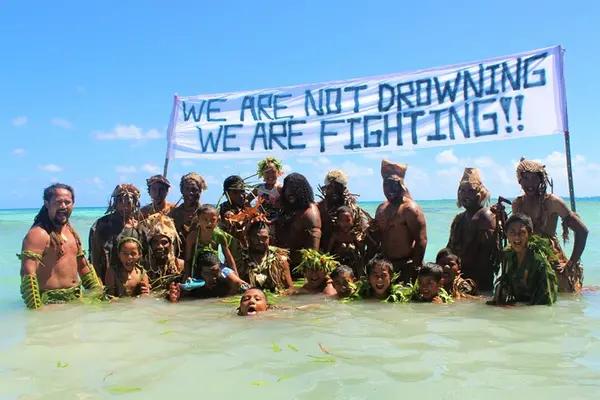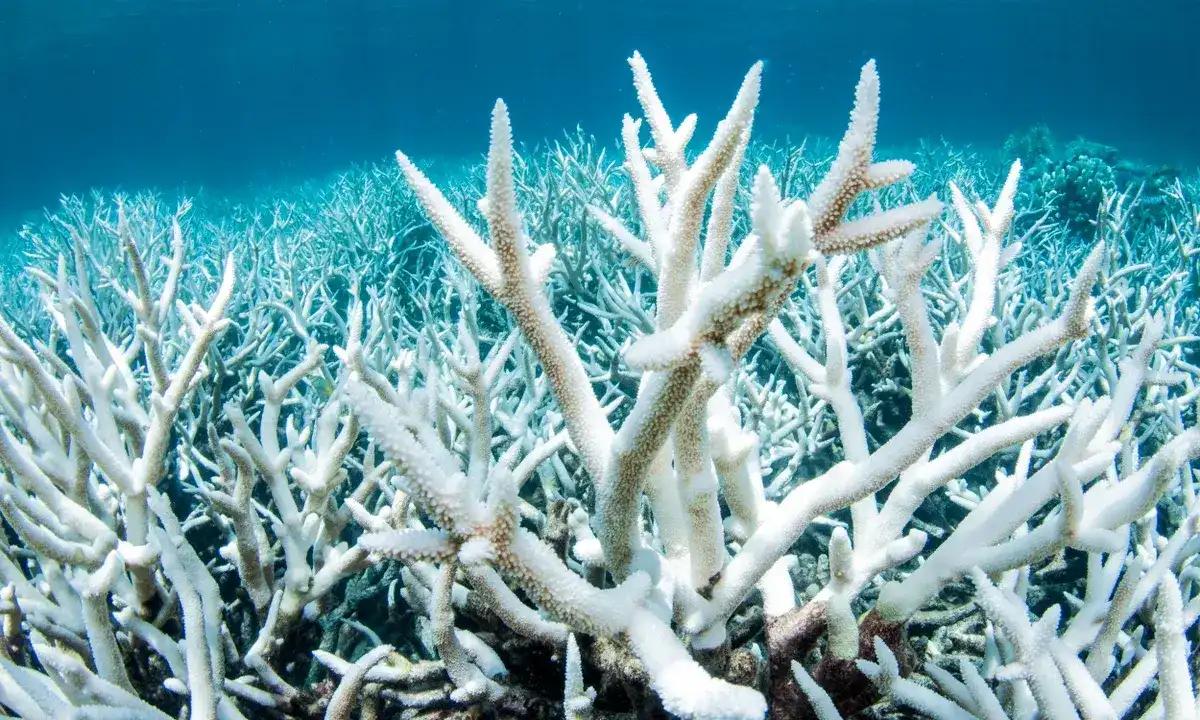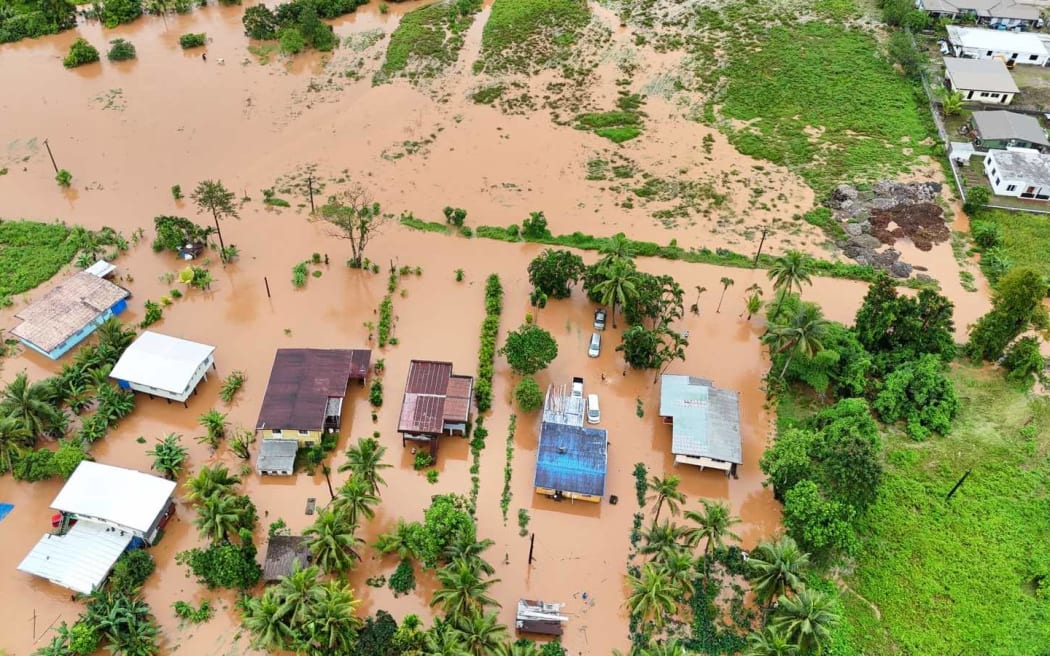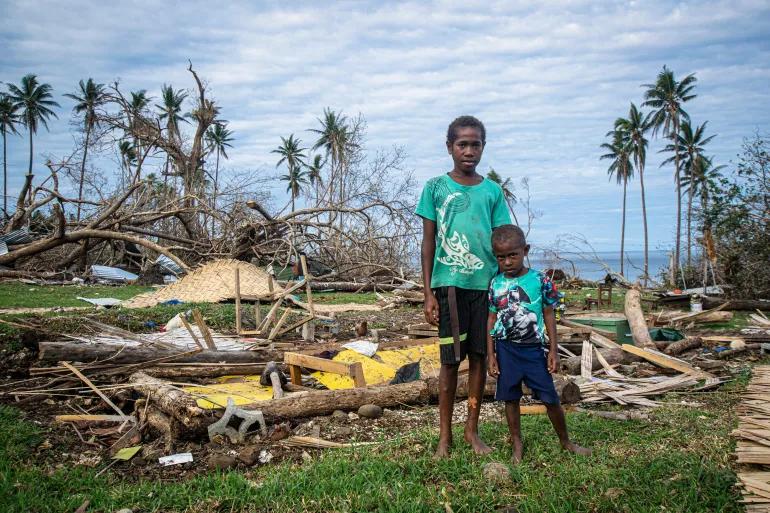

Tuvalu is among Pacific island nations being vulnerable and isolated in the face of a massive ocean and climate threat.
Photo/Supplied
'Oceans on Fire': Pacific faces rising heat and climate challenges
Scientists warn that without major reductions in global pollution, the region will keep experiencing severe weather events and damage to marine life.


Realm relations in focus as Tokelau-NZ marks 100-year history

The Sāmoan Tenor named Pati who turned disadvantage into an operatic destiny

Argentina eyes Pacific Islands Forum dialogue partnership as NZ says nations must decide

Naval officers face charges over sinking of HMNZS Manawanui

Realm relations in focus as Tokelau-NZ marks 100-year history

The Sāmoan Tenor named Pati who turned disadvantage into an operatic destiny

Argentina eyes Pacific Islands Forum dialogue partnership as NZ says nations must decide
As heatwaves in the ocean become stronger across the Pacific, island nations like Tuvalu and Kiribati, along with New Zealand and Australia, are facing serious challenges from a warming sea.
The changes are leading to declining fish populations, stronger storms, loss of cultural heritage, and forcing people to move to safer ground.
With the hurricane season approaching, which runs from November to April, scientists are warning that if we don't take urgent action to reduce emissions, the Pacific will continue to be hit hard by climate-related disasters and severe damage to the region's marine life.
Scientists say the main cause of these issues is the warming waters in the northern Pacific.
The increased heat is causing unusual weather patterns that particularly affect island communities, where more severe weather events are becoming common and dangerous.
Experts warn that the effects are devastating, threatening marine environments, coastal communities, and national economies.

The increased ocean heatwaves are causing unusual weather patterns that particularly affect island communities. Photo/onegreenplanet
How oceans influence weather
According to Dr Lualawi Mareshet Admasu, an atmospheric scientist at the University of British Columbia (UBC), unusually warm ocean temperatures are pushing the jet stream northward, leading to record-high temperatures in places like Canada.
In the Southern Hemisphere, these warm waters disrupt rainfall patterns, leading to more intense cyclones, prolonged droughts, and dangerous marine heatwaves. Pacific Island nations are bearing the brunt of these changes.
"The Pacific Ocean absorbs about 90 per cent of the excess heat trapped by greenhouse gases," he says in a statement. "What we’re seeing now is that the ocean is reaching its limit, and the impacts are becoming more intense and more widespread."

The main cause of mass coral bleaching events is rising ocean temperatures brought on by climate change. Photo/CoralVita
Threats to Pacific Islands
For low-lying island nations like Tuvalu, Kiribati, and the Marshall Islands, rising ocean temperatures pose a life-threatening challenge.
Warmer waters create stronger tropical storms, harm coral reefs, and contribute to rising sea levels, putting homes, food supplies, and freshwater sources at risk.
"In places like Fiji or Vanuatu, marine heat waves can wipe out entire reef systems, which communities rely on for fishing and tourism," he says. "We’ve already seen major coral die-offs across the region."

Heavy rainfall due to a low pressure system caused flash flooding in low-lying and flood-prone areas in Fiji's Central Division on 26 October 2024. Photo/Fiji Roads Authority
Aotearoa and Australia: Facing their own climate challenges
In New Zealand, reports of unprecedented marine heat events, especially around the South Island, are affecting fish stocks, aquaculture, and Māori communities that have deep cultural connections to the ocean.
Changing weather patterns also bring increased risks of floods, droughts, and agricultural disruptions, threatening food security and infrastructure.
Australia is also experiencing warmer ocean temperatures, which are linked to extreme bushfires, heavy rainfall, and coral bleaching in the Great Barrier Reef.
Marine heatwaves, similar to the "blob" that affected North America from 2013, are now appearing regularly off the Australian coast. The country’s fisheries, coastal ecosystems, and rural economies are becoming increasingly vulnerable.

Children stand near their cyclone-damaged home in Vanuatu. Photo/UNICEF
A wake-up call for the region
The message is clear: marine heatwaves are happening more frequently, with greater intensity and lasting longer. Climate models suggest this trend will continue unless we make major cuts to emissions.
As a representative from a Pacific Island climate delegation told a recent conference, “In the Pacific, the ocean is everything. It's our protector, our provider, our identity. When the ocean suffers, our people suffer.”
While countries like Canada may experience unusual warmth as a distant result of ocean heating, the Pacific region faces immediate and severe consequences - from collapsing fisheries and cultural loss to climate migration and threats to sovereignty.